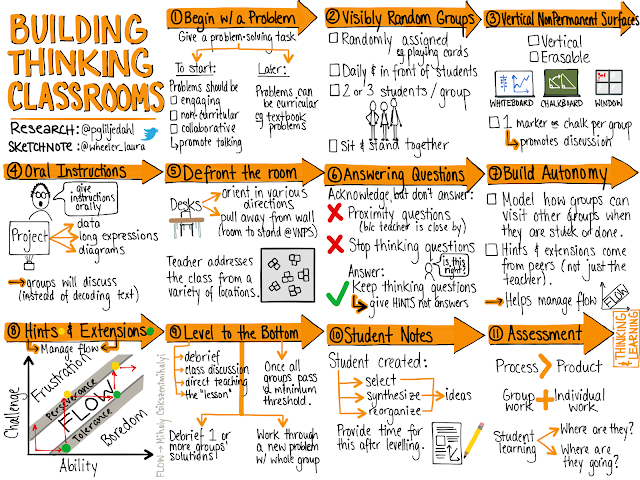Voyageurs of Learning
“Joseph-Nicholas Delisle and his nephew by marriage, Philippe Buache, were obsessed by the idea of a vast sea, connected to the Pacific in northwestern North America. Beginning in 1752, Delisle and Buache published a series of maps and memoirs describing this mythical 'Mer de 1'ouest'; some of their maps appeared as late as 1779 in Diderot's Encyclopédie. The 'Mer de l'ouest' had been a strong motive for exploration but as early as the 1740s few others dared place it on a map”.
(Library and Archives Canada)
(Library and Archives Canada)
| Image and except retrieved from the Historical Atlas of Canada |
During our second day of Innovation Stations a rather interesting metaphor struck me. We were discussing how as early users of this educational technology, we have a responsibility to document our learning journey, successes and failures, so that others might learn from us and to provide documentation of our thinking processes for our own reflection.
Maybe this is a little like the early explorers of Canada, such as Delisle and Buache, who dared to envision something different, something uncharted, something magical. They had hope and belief in discovery. When they set off on new explorations, they were not sure where they would lead. With conviction, passion, incredible resilience, and bravery they embarked on their expeditions.
As I looked around the classroom this afternoon, I noticed students totally enamoured with their learning expeditions. When they encountered challenges, such as robots 'misbehaving' or code not quite working they asked questions of each other and tried something else. I witnessed teams seeking support from the team who completed the station the day before. In the final moments of consolidation, students were keen to add their reflections, as they are beginning to see the importance of it for themselves and for others. With each exploration, a map required to show where we have been.
All of this makes me think of the many edtech 'voyageurs' who dare to envision education as something different than it is today. Those who create possible 'maps' of what education can be, those with hopes and aspirations for learning in new and innovative ways. We cannot predict with certainty what the future will look like. Our 'maps' may turn out to imperfect, such as the mythical 'Mer de l'ouest'. Yet, we keep searching for new places, with hopeful and passionate hearts.
Educators and learners as voyageurs of learning.
Maybe this is a little like the early explorers of Canada, such as Delisle and Buache, who dared to envision something different, something uncharted, something magical. They had hope and belief in discovery. When they set off on new explorations, they were not sure where they would lead. With conviction, passion, incredible resilience, and bravery they embarked on their expeditions.
As I looked around the classroom this afternoon, I noticed students totally enamoured with their learning expeditions. When they encountered challenges, such as robots 'misbehaving' or code not quite working they asked questions of each other and tried something else. I witnessed teams seeking support from the team who completed the station the day before. In the final moments of consolidation, students were keen to add their reflections, as they are beginning to see the importance of it for themselves and for others. With each exploration, a map required to show where we have been.
All of this makes me think of the many edtech 'voyageurs' who dare to envision education as something different than it is today. Those who create possible 'maps' of what education can be, those with hopes and aspirations for learning in new and innovative ways. We cannot predict with certainty what the future will look like. Our 'maps' may turn out to imperfect, such as the mythical 'Mer de l'ouest'. Yet, we keep searching for new places, with hopeful and passionate hearts.
Educators and learners as voyageurs of learning.

Voyageurs of Learning beautifully captures the lifelong journey of curiosity and growth. The way this post highlights exploration in education truly resonates with students navigating academic challenges. Many learners today rely on supportive resources such as college assignment help to stay on track while continuing their intellectual voyage. What matters most is the desire to understand, question, and discover. Your message encourages readers to embrace learning with an open mind, making the journey just as meaningful as the destination.
ReplyDelete